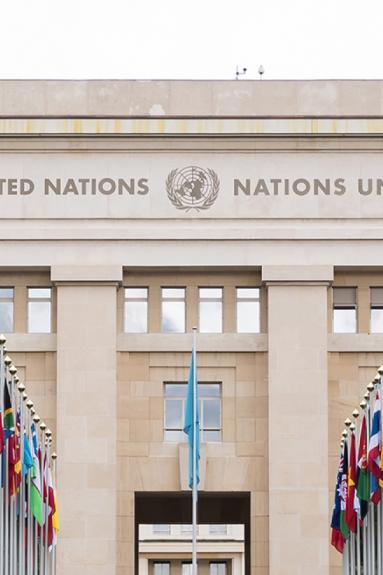
Master´s Degree Online inInternational Relations
*Continuing Education Master
Credits
- Compulsory (CO): 50
- End of Master Project (TFM): 10
- Total Credits: 60
Curriculum
| INTERNATIONAL RELATIONS | |||
| Subject | ECTS | CM | Type |
| Theory of International Relations: schools of thought and paradigms. | 2 | 1º | OB |
| International Law: the subjects of International Law: States, International organizations, peoples, liberation movements, multinationals, individuals. | 2 | 1º | OB |
| Foreign Policy Analysis: applied analysis of the dynamics of contemporary International society. Geopolitical competition, religion, technology, climate change. | 2 | 1º | OB |
| Foreign Policy, Public Opinion and Media: public diplomacy, digital diplomacy, think tanks, sport, culture and “soft power”. | 2 | 1º | OB |
| Leadership and International Influence: schools of leadership, the determinant factor of leadership in International Relations Politics. | 2 | 1º | OB |
| THE GLOBAL ECONOMY | |||
| Subject | ECTS | CM | Type |
| Rich world versus poor world: development, income distribution, demographics, borders and migrations. | 2 | 1º | OB |
| Development cooperation within the framework of the United Nations, NGOs, and the CSR of multinational companies in developing countries. | 2 | 1º | OB |
| International trade and global financial markets: IMF, World Bank; crisis and reforms. | 2 | 1º | OB |
| Global disruption of big tech firms: Apple, Amazon, Facebook, Google, Microsoft, Tesla, Netflix and Spotify. | 2 | 1º | OB |
| Natural resources and global environmental policy: the future of energy, the decarbonisation of the world economy and global policies to contain climate change. | 2 | 1º | OB |
| PEACE, SECURITY AND DEFENSE | |||
| Subject | ECTS | CM | Type |
| Regulation of the use of force in International Relations, International Humanitarian Law and “Lawfare” | 2 | 1º | OB |
| International Criminal Law: Human Rights, International crimes and International Criminal Courts. | 2 | 1º | OB |
| Challenges to International security: Armed conflicts, jihadist terrorism, proliferation of weapons of mass destruction, espionage and organized crime. | 2 | 1º | OB |
| Threats in global common spaces: cyberspace, maritime space, airspace, and outer space. | 2 | 1º | OB |
| Intervention below the threshold of open conflict: hybrid warfare, influence operations, election meddling. | 2 | 1º | OB |
| THE EURO-ATLANTIC SPACE | |||
| Subject | ECTS | CM | Type |
| The European Union: History, enlargement and Brexit . | 6 | 2º | OB |
| The Russian Federation in Putin era: strengths and weaknesses, foreign policy, the Crimea and Ukraine conflicts. | 2 | 2º | OB |
| The United States of America in Trump era: the transatlantic relationship, the future of NATO, USA foreign policy towards Asia and Latin America. | 2 | 2º | OB |
| Ibero-America today: Brazil, Bolivarian America, the peace and democratization processes, economic integration efforts. | 2 | 2º | OB |
| ASIA PACIFIC AREA | |||
| Subject | ECTS | CM | Type |
| The rise of Asia in the world economic concert and the main processes of Asia-Pacific economic cooperation. Focus of tensions and territorial conflicts. | 2 | 2º | OB |
| The heyday of China and the rise of India: “friendly” adversaries. | 2 | 2º | OB |
| THE MIDDLE EAST AND AFRICA | |||
| Subject | ECTS | CM | Type |
| Arab world: state of affairs and evolution, the Arab spring and the civil wars in Libya and Syria. | 2 | 2º | OB |
| Middle East: the Palestinian-Israeli conflict, the Iran-Saudi Arabian regional geopolitical rivalry; armed interventions and terrorism: the Yemen war, Daesh. | 2 | 2º | OB |
| FINAL MASTER'S WORK (MFP) | |||
| Subject | ECTS | CM | Type |
| Dissertation research design: research module to help students focus on their Research thesis and Public presentation of results. | 10 | 2º | MFP |



